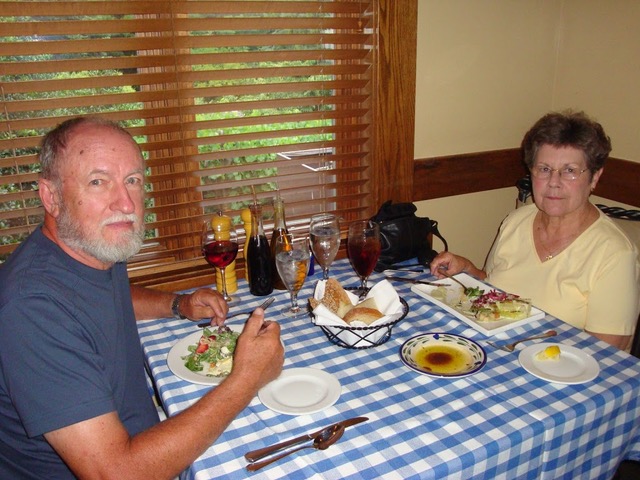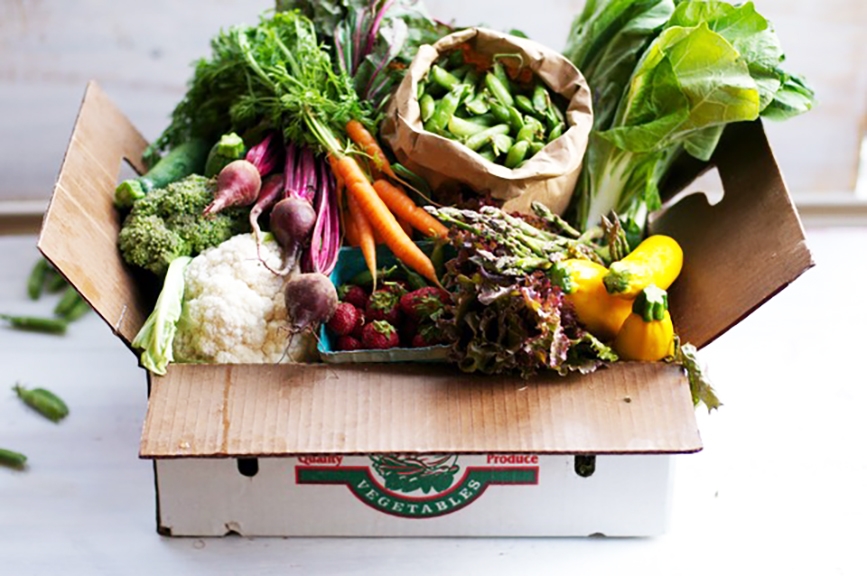
Judy McGary said the past 17 years of running a successful small farm with her husband John S. McGary can only be attributed to one thing.
“God had a plan for us,” McGary said.
That plan was Doe Run Farms.
Generations of farmers
The McGary’s, who are regular attendees of St. Anthony of Padua Church in Fayetteville and St. William Church in Shelbyville, grew up around farming for several generations in Kentucky. But while living several decades of their marriage in Huntsville, Alabama, the McGarys went into their own careers. Judy was a nurse and John was an electrical engineer. But they eventually came to realize that they missed living on a farm. So, in late 1997, they bought property in Lincoln County, Tennessee, built a house and settled in.
“We started growing our own food, and we shared it with our family and some of our neighbors,” Judy McGary explained. But it was a hobby, that is, until John’s unexpected retirement in 2004 when cutbacks were coming to the electrical engineering company he worked for.
“John retired and we thought, ‘What are we going to do now?’’ Judy McGary said. “We still need an income.
“Then one day, on a whim, we decided to take our food to the Franklin Farmer’s Market” with their products marketed under Doe Run Farms, and eventually the Farmer’s Market in Madison, Alabama, which they continued for the next three years. But that wasn’t steady income either.
“The Farmer’s Market has good days, and they have bad days. When there are plenty of people coming, it’s great,” Judy McGary said. “When it’s rainy or in the summer when the kids have extra-curricular activities, the crowd was light. We’d end up having to donate a lot of what we took or compost it.”
Finding the CSA model
Then, in 2006, they began to hear about CSA shares farming, and after attending a few farm conferences, they realized that it was the perfect business model.
Community Supported Agriculture or CSA means “you form a partnership with a community of people who want to eat locally and want to eat fresh food grown on local farms,” Judy McGary explained. “When the season begins, every week for a set number of weeks, the consumer gets a box of assorted vegetables, produce and seasonal fruit delivered to them” including corn, tomatoes, lettuce, peppers, apples, strawberries and more.
“CSA wasn’t popular in Tennessee at the time and very few knew what it was,” Judy McGary said. “But we knew that’s what we wanted our business model to be because we knew how many we were going to grow for, and we knew we would have a place for our vegetables and produce to go once we put the seeds in the ground.”
So, starting in 2006, the McGarys did it all, with a spring and fall CSA season. They planted the seeds by hand and grew the produce needed as they began to take on more customers.
“It grew and grew,” Judy McGary said, and they knew how hard it was getting to do it all on their own, even with buying various pieces of farming equipment as they could.
Growing the business
As the business continued to grow, the McGarys built friendships with other area farmers, and they got to know how they farmed and found that they all had similar goals.
“We decided we would form a partnership … and become a multi-farm CSA, and it became very beneficial to our customers,” Judy McGary said. “For example, if you have a flooded farm one week, other farmers can pick-up the slack. We contribute to our CSA share as well, so we always have a consistent amount of food that we can deliver to our customers, and we’re not putting all of our eggs in one basket.
“We’re dependable, and I think that’s one of the reasons why we’re so successful,” she said, despite the decrease in successful small farms throughout the country.
And, Judy McGary said, by being selective of the farmers they partner with, they know their customers are only getting the best product.
“They’re all seasoned farmers. They all have a particular expertise in what they grow,” she said. “We want farmers who want to grow specific products because if they enjoy what they’re growing and they’ve been doing it for a long time, they know what grows best for them.
“We have folks that we don’t buy anything from them but corn, but they have the best sweet corn that you’ll ever put in your mouth. It’s the same thing with our heirloom tomatoes … and cauliflower,” Judy McGary explained. “We want to offer our customers premium quality crops.
“We don’t add another farmer unless we’ve known them … because not all of them have the same farming philosophy that we do,” she added. “We were certified organic for six years, but we decided to not renew our certification because of the time involved and the money involved, but we still like to see people use as many natural products as possible. … We try to be ecologically responsible. We know we’re stewards, and we know we’re expected to take care of our land … and be responsible with the land you’ve been trusted with.”
As they took on more and more partnerships with now 10 small farms in all, they eventually switched from a two-season spring and fall approach to one 20-week season from May to October.
Generations of customers

Through it all, their customer base has continued to grow as children from some of their first families have grown up and continued the tradition.
“What I enjoy most about this is seeing the faces of the people that we deliver to and how excited they are when they get their disposable tote bags” full of produce, Judy McGary said. “It’s exciting when someone who started out with us who had pre-teens, now have their own families and are getting the bags, too. … It’s really special.
“Most people that farm and raise food do it for the pure enjoyment of growing crops and seeing people enjoy the fruits of their labor,” she said.
“The relationship with the people is what we enjoy,” John McGary added.
And Judy McGary said she hopes that along the way she and her husband can provide inspiration to those they meet that it is never too late to try something new.
“My husband was 62 and I was three years younger when this all happened (with his unexpected retirement) and because we didn’t have any alternatives, I felt like we were being led. God was saying ‘You’ve got this farm, do something with it.’ … I can’t explain it any other way,” Judy McGary said. “This is what we’re meant to do. Maybe we came along at a time in other people’s lives when they needed something like this. And I think one of the things that really means a lot to me is, if we can do it, other people that are older, if they want to farm, they can do it, too. We were not young when we fell into this, but we never gave up the hope that we couldn’t make it successful if we worked hard.
“I hope we can encourage other people not to give up on themselves. They’re not too old to pursue something that they want to do. They can find a way,” she said. “They need to pray a little bit about it, and a way will be provided if it’s something they have a burning desire to do. It doesn’t make a difference how old they are, and it sure worked in our case.”
For more information, visit doerunfarms.com or reach out to Judy McGary via e-mail at drf@hughes.net or call 931-625-2651.









